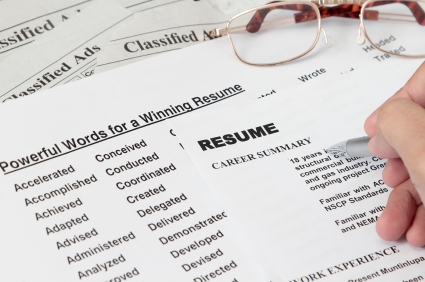
We had a recent blog post that asked the question, “What type of resume gets a better response – a chronological resume (that lists out accomplishments from each position) or a hybrid resume (that places accomplishments in one place and list positions under a separate headline–or a mix of that)?” There were a lot of questions about which one we thought was the best, but with so many responses we began to wonder what type of resume is best.
What do you think? What’s your opinion on the matter and do you have any tips for maximizing your resume?
We can look at statistics to see that the average HR manager looks over a resume in about 10-15 seconds. So, a hybrid resume where your accomplishments are listed in one area and job listings in another may work to draw attention since the reader can skim your highlights and skills right upfront. If they like what they see, then your chances of them reading further increase. But, if they have to browse to find your qualifications, they will move on to the next resume. Your choice of resume could change depending on what you type of position you’re applying for. Does your field deal heavily in accomplishments or with experience? Look and see what type of requirements are involved before sending your resume.
Of course there are pros and cons to both. One person responded that they found chronological resumes to be the most requested type by companies hiring, and basing their decision off of that, they believe that it’s the most effective form (this is what I hear often as well). If it’s what the company wants, then that’s what you should give them. Also, they believe that a capabilities resume does not do enough to showcase, specifically, what type of work (or the experience level) you had with your past jobs. Some point to chronological resumes being a little to heavy on text, making it hard to get a clear picture of your past. You want to showcase what you’re qualified to do, so find a way that works with your skills. It’s not a bad thing to combine resume types as well.
The important thing is finding a job. That’s the bottom line. Whatever resume type you choose to use, recruiters will see that you are the most complete choice for the position. A great resume can make it easier to find a job.
Resume Best Practices (at a glance)
Hybrid Resume
• Make sure to mention which company you achieve great results – “Reduced overhead by $X for McDonalds Worldwide, LLC.” It frustrates readers if they don’t know where you did what.
• When you make mention of past companies, include information so that they can get a sense of the company’s size and scale, including how your position affected the company, assuring that your involvement was really meaningful.
Chronological Resume
• If you’ve had a lot of jobs, you may want to summarize your earlier info. You don’t need to put work history from the 1980’s and early 90’s on it. Too many jobs looks like you can’t sit still, plus summarizing some of your earlier stuff adds interest and breaks the monotony of job after job after job.
• Add key accomplishments to grab HR manager’s interest.
Chronological or Hybrid Resume: Which is Right for Your Job Search?
Blog Executive Resumes Job Search Professional Resumes Resume Keywords Resume Writing Resumes
